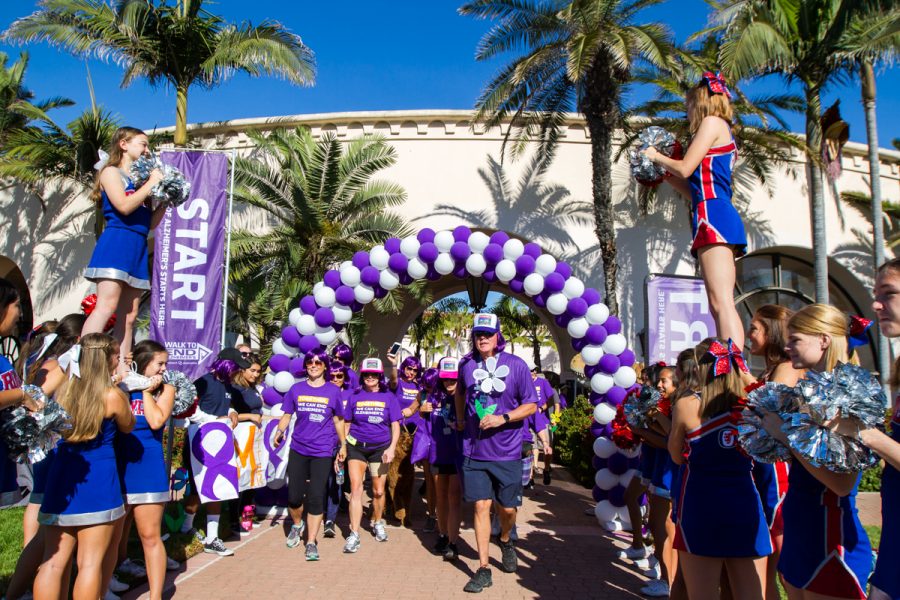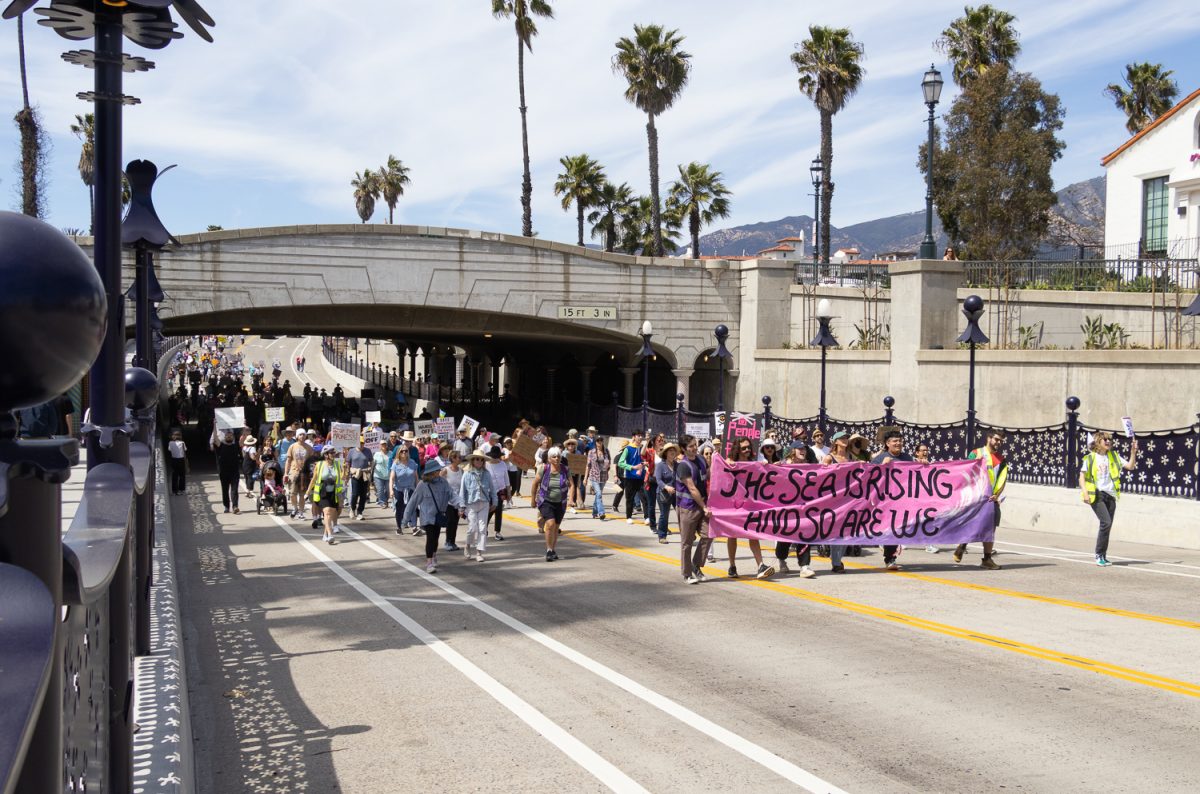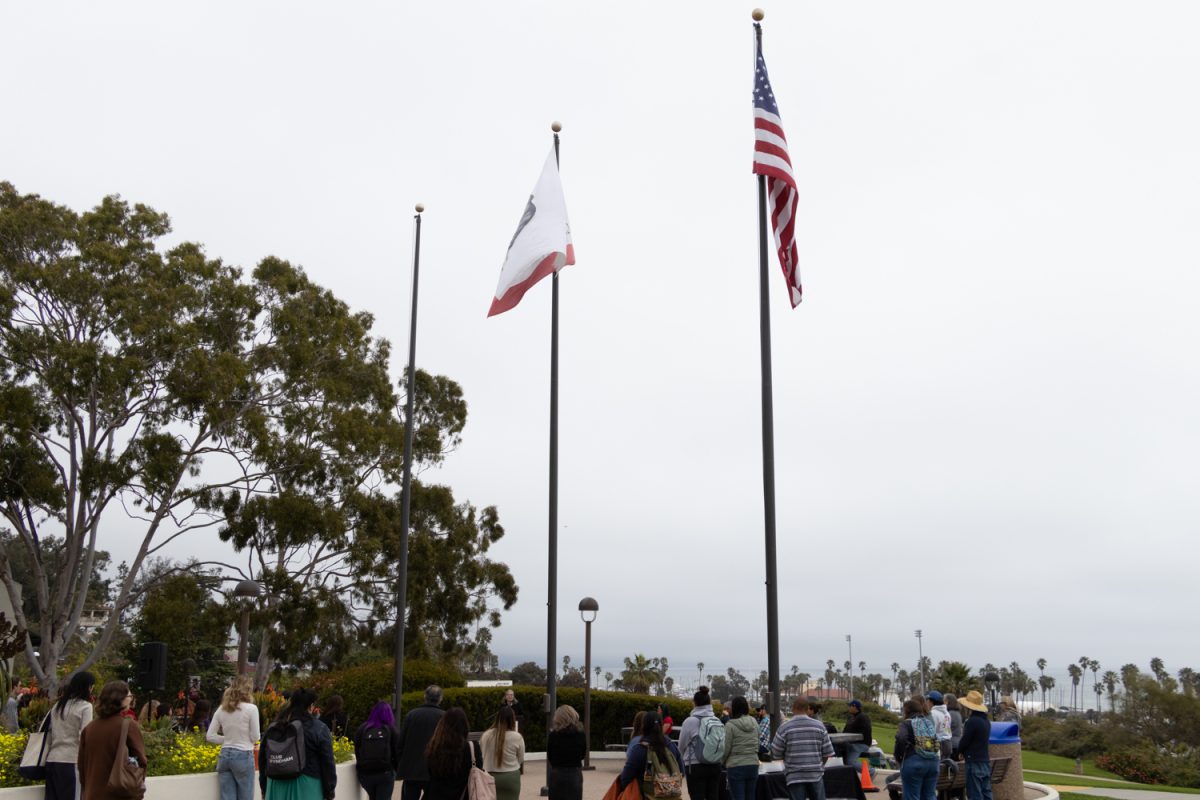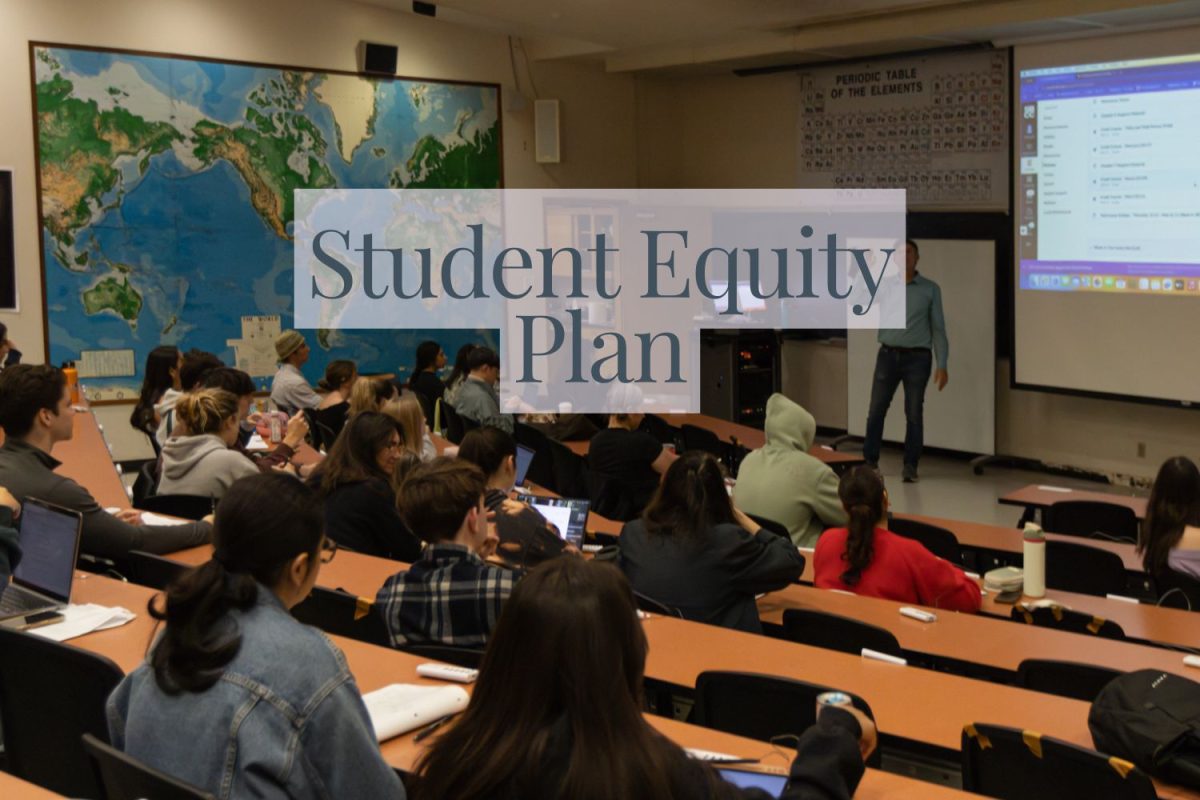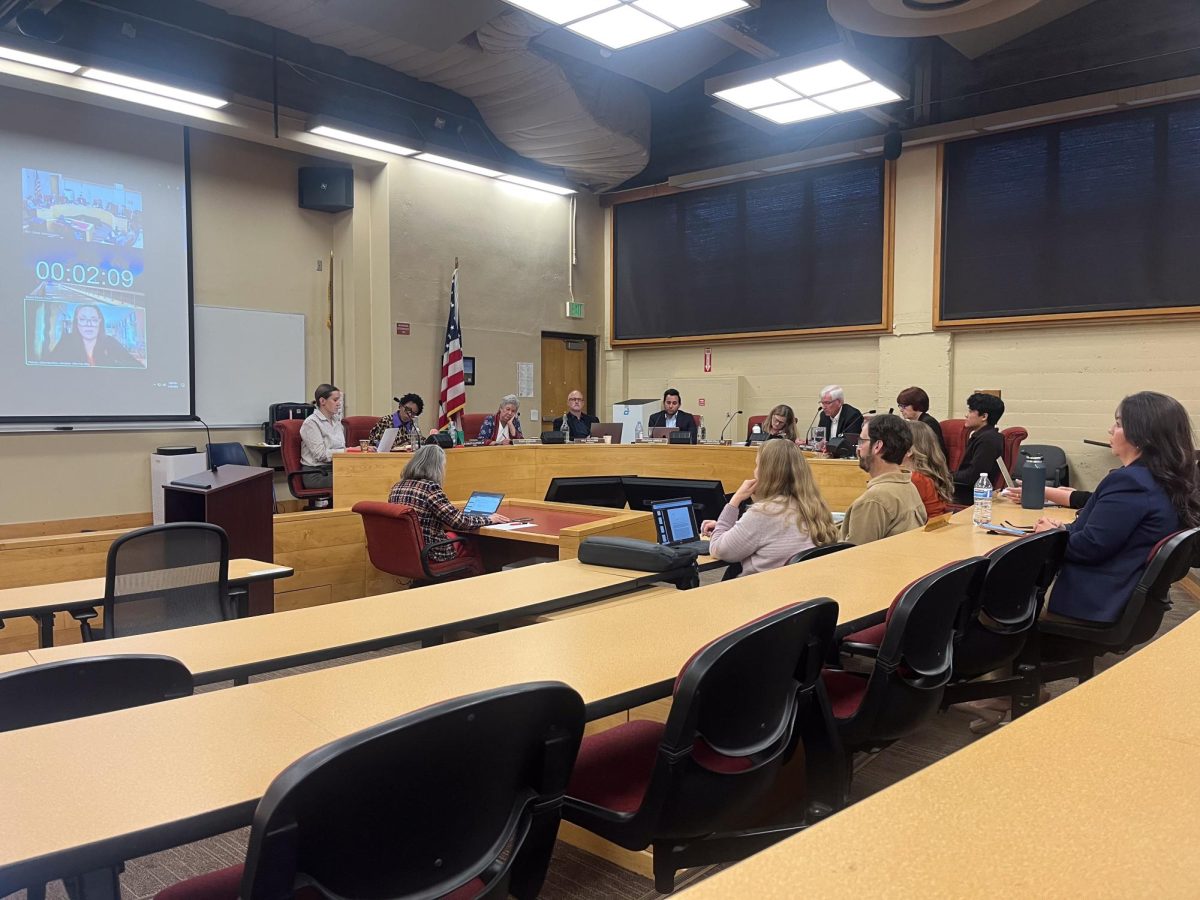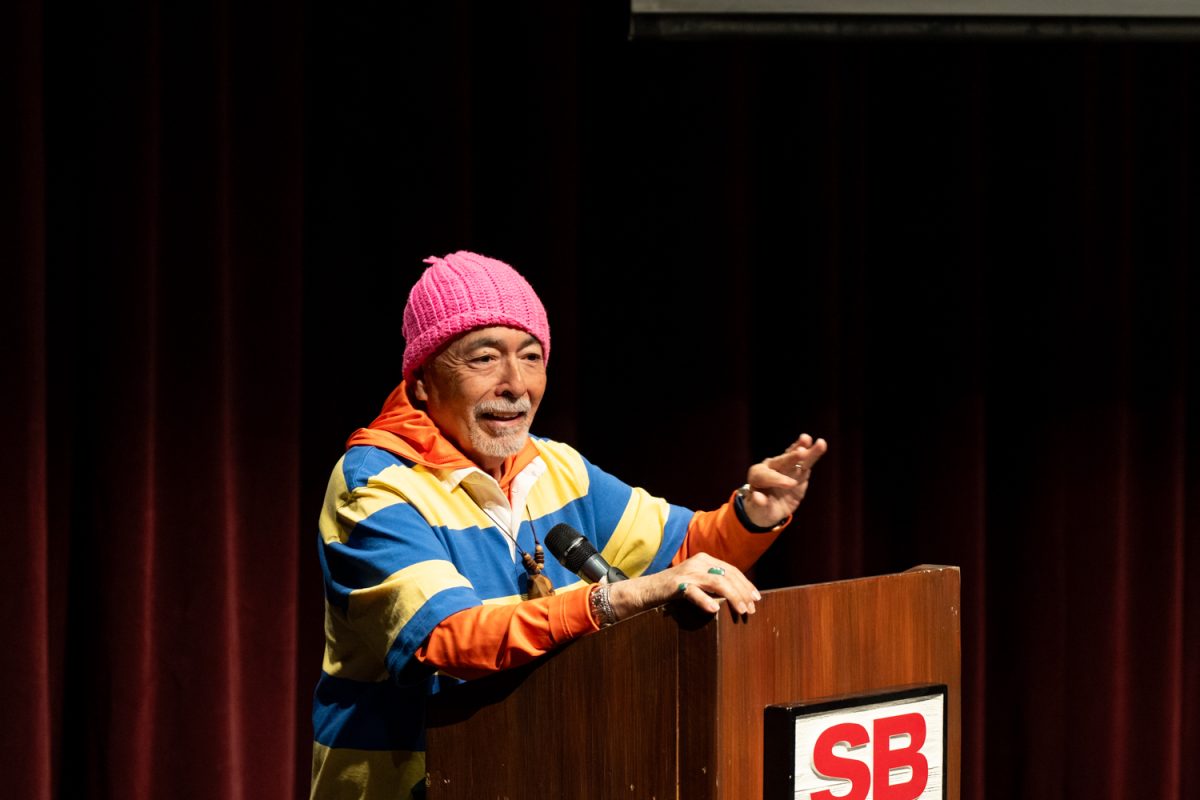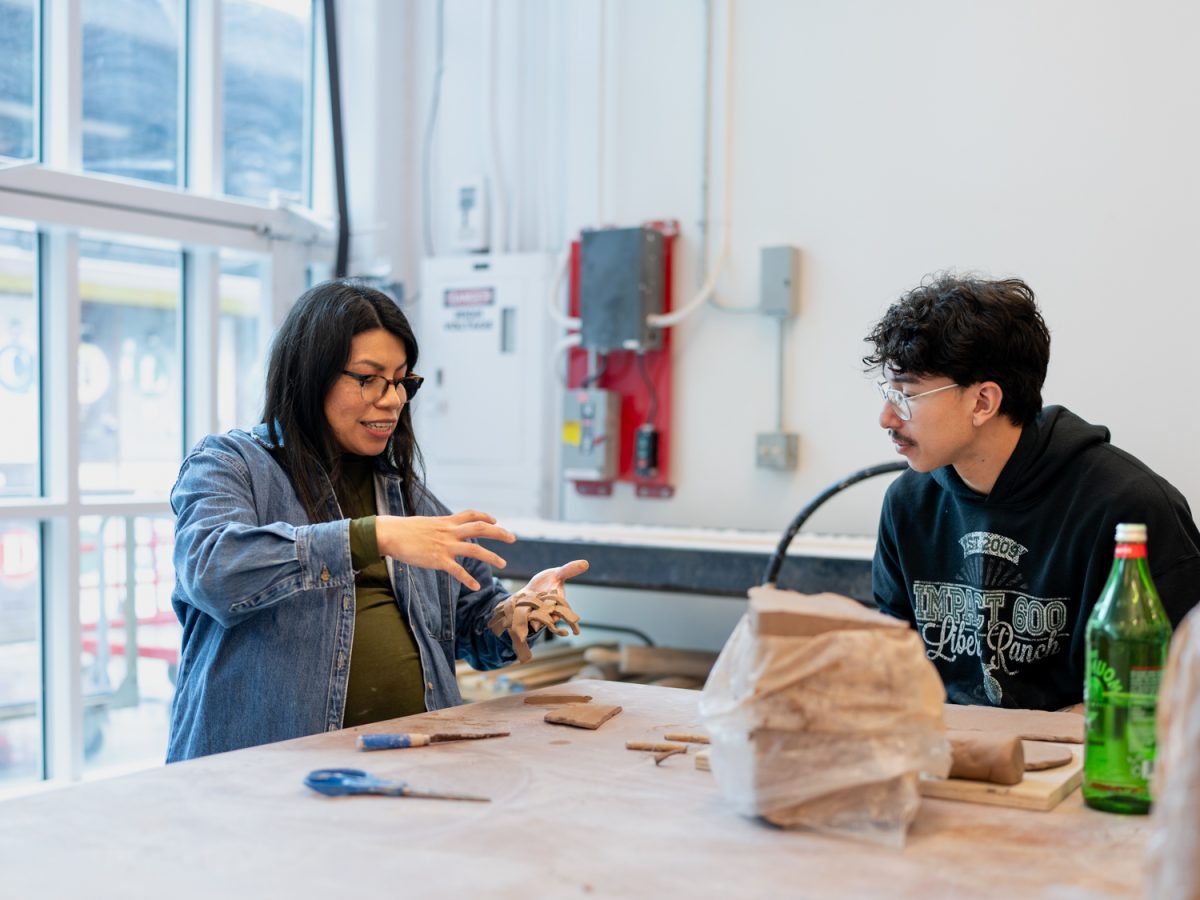Phi Theta Kappa joined the Santa Barbara community in the annual Walk to End Alzheimer’s Saturday at the Hilton Santa Barbara Beachfront resort in honor of National Alzheimer’s Awareness month.
The Walk to End Alzheimer’s is held in more than 600 communities across the nation and is the world’s largest event to raise awareness for Alzheimer’s. In Santa Barbara, the walk typically gathers members of the Santa Barbara community from all ages with many members of the community having participated in the walk for several years.
Two of these members are Amy Turner and Jennifer Miners, who say their fight against Alzheimer’s is inspired by personal losses and their work in the community.
“I’m seeing progress in treatment and I would like to see more progress,” said Turner, a spiritual counselor who lost her grandmother to Alzheimer’s in the 1980s. “So many people are afraid of it and maybe that’s why they don’t talk about it.”
Miners said that as a social worker, she is inspired to walk by “going around and seeing all of the resources in the community.”
“I have to give out resources to people and I want to know what’s going on and what’s out there for people,” she said.
After an opening ceremony, participants walked the 5k distance along the coast and returned for a complimentary lunch at the Plaza. Several local groups joined in to raise awareness and funds for fighting Alzheimer’s, including City College’s Phi Theta Kappa Honor Society, which donated $1,000 to the Alzheimer’s Association. Leading up to the event, Phi Theta Kappa members had raised money by selling Trick or Treat bags on the West Campus lawn.
The idea for the group to participate started with one of its advisors, Mark Sanders, who walked alongside fellow advisors Tara Carter and Phyllisa Eisentraut during the event.
“I have a number of family members of friends who have been affected by Alzheimer’s,” Sanders said.
This is Phi Theta Kappa’s third year of involvement with the walk and the society plans to continue its involvement for years to come and encourages students to join them each year. By increasing involvement, the community takes a collective step forward in raising awareness and necessary funds for Alzheimer’s care, support and research.
“I don’t know if we can make a difference but we are at least participating in bringing attention to it and raising money,” said Professor Manoutchehr M. Eskandari-Qajar, who founded City College’s chapter of the society 17 years ago. “It’s something all of us have to be concerned with because there is no cure for it and it has become, it seems, quite common.”


